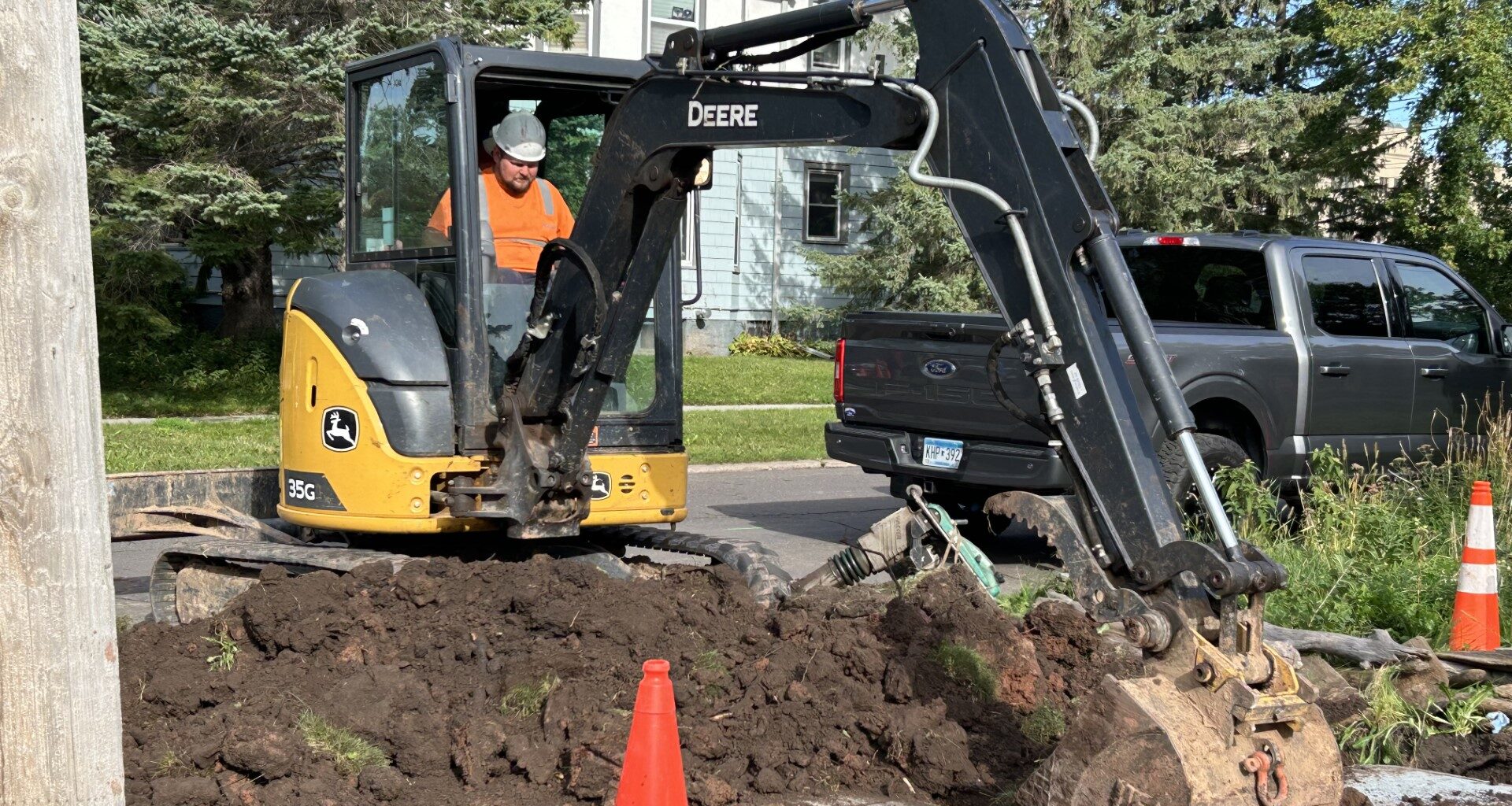A faster and more reliable way to get online is being offered to residents of one Superior neighborhood with others soon to be added, the city’s mayor said.
ConnectSuperior began making high-speed broadband service available to residents earlier this month with the completion of its fiber optic infrastructure, though the city itself isn’t the internet provider.
“What we created is a physical network of fiber lines over which private internet service providers can send the internet to their customers,” Superior Mayor Jim Paine explained of the service that offers an alternative to the cable-based internet already offered by Spectrum. “It is the only network of its kind in the state of Wisconsin. It is the fastest network in the Twin Ports.”
Stay connected to Wisconsin news — your way
Get trustworthy reporting and unique local stories from WPR delivered directly to your inbox.
Paine and other city officials first discussed plans for the broadband network in 2020. He joined WPR’s Robin Washington on “Morning Edition” to talk about the new service, as well as the broader issue of what role cities should play in providing basic services to their residents versus that of private industry.
This interview has been edited for brevity and clarity.
Robin Washington: You say the new service is not a monopoly — that residents have other internet service they can continue to access.
Jim Paine: Yes, it’s actually the exact opposite of a monopoly, which was the problem we were trying to fix. We built the infrastructure and we let the private sector compete fairly and equally for your business on that infrastructure. Pretty much any ISP can join.
Advanced Stream is one of our ISPs; Superion is another. They compete with Spectrum. What we did is we gave you options. If Charter Spectrum wanted to join our network, they would be welcome.
RW: You mentioned one neighborhood is connected already and others are on the docket. Is it limited to the city limits of Superior?
JP: Yes, because my power is limited to the city limits of Superior. It’s now in the university neighborhoods, right next to old Main, east towards Hammond Avenue, north towards Belknap.
It’s a small neighborhood but with a lot of customers. The next neighborhood we’re going to light up, hopefully this fall, is in the far north end.
RW: You also have been discussing recently the possibility of the city taking over the water utility from the privately owned Superior Water, Light and Power. In the broadest sense, what services should government provide and what should be privatized? The extremes are communism, where the government provides everything, versus total privatization, where police, fire, Social Security, and everything else is left to private companies.
JP: I just finished reading a massive book on the Russian Revolution, so this is a great time to ask me a question about communism!
There’s a difference in regards to infrastructure, which is ultimately the role of government. Government does what the private sector cannot or will not do. Our potential acquisition of the water utility is because water is something that has to be provided affordably and reliability to everybody. That’s true for public utilities — water, wastewater, potentially even electricity or gas for heat.
I think a better comparison is to our road network. We built one road network, but the U.S. Postal Service, DHL, UPS and FedEx can all deliver your packages on that network. Government is facilitating private competition. That’s what good infrastructure can do. That’s what this network does.
RW: How can residents sign up?
JP: They can go to connectsuperior.com, whether they are in the initial neighborhood or not.
If you have an idea about something in northern Wisconsin you think we should talk about on Morning Edition, send it to us at northern@wpr.org.

